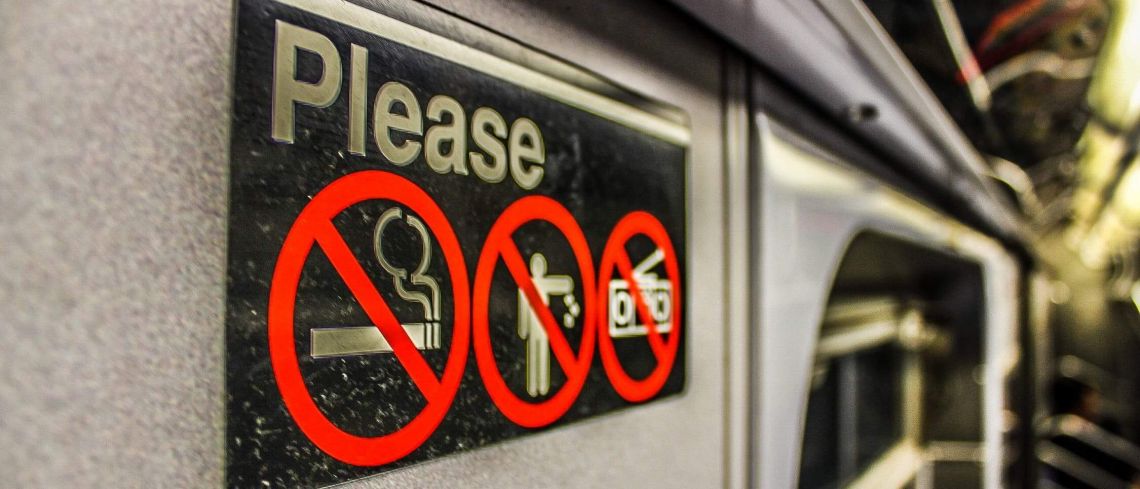
Today is No Smoking Day 2018, dedicated to helping smokers give up for good. The impact on your oral health that smoking has is not something which many people consider as one of the main reasons to quit smoking. We spoke to Dr Nigel Carter OBE, Chief Executive of the UK’s leading oral health charity, the Oral Health Foundation, about the hugely damaging effects smoking has on your oral health.
From bad breath to cancer, here are the questions you need to be asking about smoking and your oral health, and why you should consider quitting smoking in 2018.
How can smoking affect my oral health?
You are probably aware that smoking is incredibly bad for your health. It causes many serious medical problems and, in some cases, fatal diseases. However, many people don't realise the damage that smoking does to your mouth, gums and teeth. Smoking can lead to tooth staining, gum disease, tooth loss, and in more severe cases mouth cancer.
Why are my teeth stained?
One of the effects of smoking is staining on the teeth due to the nicotine and tar in the tobacco. It can make your teeth yellow in a very short time, and heavy smokers often complain that their teeth are almost brown after years of smoking. But this is the least of your problems.
Find a teeth whitening provider today.
How will smoking affect my gums and teeth?
Smoking can also lead to gum disease. People who smoke are more likely to produce bacterial plaque, which leads to gum disease. The gums are affected because smoking causes a lack of oxygen in the bloodstream, so the infected gums don't heal. Smoking causes people to have more dental plaque and causes gum disease to get worse more quickly than in non-smokers.
Are there special dental products I can use?
There are special toothpastes for people who smoke. They are sometimes a little more abrasive than ordinary toothpastes and you should use them with care. Your dental team may recommend that you use these toothpastes alternately with your usual toothpaste. There are several ‘whitening' toothpastes on the market. Although they do not affect the natural colour of your teeth, they may be effective at removing staining, and therefore may improve the overall appearance of your teeth.
What about mouthwashes?
People who smoke may find they are more likely to suffer from bad breath than non-smokers. Fresh-breath products such as mouthwashes may help to disguise the problem in the short-term but will not cure it.
How is smoking linked with cancer?
Most people know that smoking can cause lung cancer, but many people still don't know that it is one of the main causes of mouth and throat cancer too. Every year thousands of people die from mouth cancer brought on by smoking. It is thought to be responsible for three quarters of all cases and it the leading cause of the disease.
How often should I visit my dentist?
It is important that you visit your dental team regularly for a normal check-up and a full mouth examination so that any other conditions can be spotted early.
You should visit your dental team regularly, as often as they recommend. People who smoke are more likely to have stained teeth, and therefore may need appointments more often with the dental hygienist.
You should also carry out regular self-checks for mouth cancer; be alert to ulcers which do not heal within three weeks, red or white patches in the mouth and unusual lumps or swellings in the mouth or head and neck area. If you notice any of these, it is essential that you tell your dentist or doctor immediately.
What can my dentist do for me?
Your dentist will carry out a regular examination to make sure that your teeth and gums and whole mouth are healthy. Your dental team will also examine your cheeks, tongue and throat for any signs of other conditions that may need more investigation, such as mouth cancer.
They may also be able to put you in touch with organisations and self-help groups who will have the latest information to help you stop smoking.
Will I need any extra treatment?
Your dentist may also refer you to a dental hygienist, for extra treatment, thorough cleaning and to keep a closer check on the health of your mouth. Your dental hygienist will be able to advise you on how often you should visit them, although this should usually be every three to six months.
For further information smoking and you oral health and how to contact smoking cessation services as well and get expert, free, impartial advice on any other aspect of your oral health contact the Dental Helpline provided by the Oral Health Foundation at www.dentalhealth.org/dental-helpline or call 01788 539780.
Related Treatments

Teeth Whitening
Tooth whitening involves lightening the natural co...

